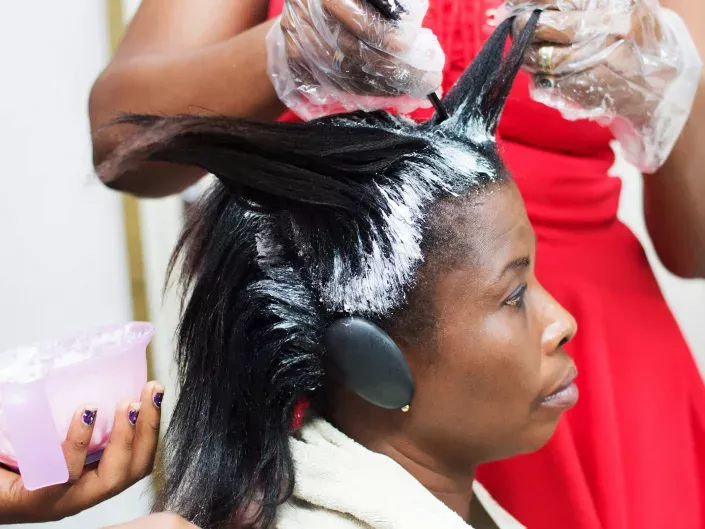A new study finds beauty products containing toxic chemicals can adversely impact cancer cells in Black women.Getty Images
Beauty products with parabens can adversely impact cancer cells in Black women, a new study finds.
Parabens are a group of chemicals that keep mold and bacteria from growing in beauty products.
The study will be presented at the Endocrine Society's annual meeting in Atlanta on Saturday.
Hair-care and beauty products marketed to Black women often contain a class of hormone-disrupting chemicals called parabens. According to a new study, those chemicals are not only linked to increased breast cancer risk, they can uniquely fuel the spread of cancer cells in Black women compared to white women.
Parabens are a group of chemicals that keep mold and bacteria from growing in beauty products in order to prolong their shelf lives. But in humans, parabens can mimic the hormone estrogen, possibly fueling dangerous cell growth, according to research.
The study, which will be presented today at the Endocrine Society's annual meeting in Atlanta, analyzed the effect parabens had on breast cancer cells from both Black women and white women. Researchers found parabens increased the growth of Black breast-cancer cell lines, but did not effect white breast-cancer cell lines at the same dose.
Parabens also increased the expression of genes linked to breast cancer in both Black and white women.
"Black women are more likely to buy and use hair products with these types of chemicals, but we do not have a lot of data about how parabens may increase breast cancer risk in Black women," Lindsey S. Treviño, the study's lead researcher, said in a press release. "This is because Black women have not been picked to take part in most research studies looking at this link. Also, studies to test this link have only used breast cancer cell lines from white women."
Increasingly, scientists are studying cancer risk from Black women's beauty products
The study is part of a community-led research project called the Bench to Community Initiative. The project brings together scientists, breast cancer survivors, hairstylists, and community activists to study the link between harmful chemicals in Black hair-care products and breast cancer.
Black women are particularly hard hit by breast cancer. The demographic has a 41 percent higher death rate from breast cancer, according to the Breast Cancer Research Foundation, and Black women under 50 have double the mortality rate from breast cancer as white women.
Observational studies have also studied the link between hair-care products marketed to Black women and breast cancer. Boston University's Black Women's Health Study, which follows 59,000 women who enrolled in the study in 1995, did not find a link between moderate use of hair relaxers to a higher risk of breast cancer. Researchers at BU did find some evidence that "heavy use of lye-containing hair relaxers" may be associated with a more aggressive form of breast cancer.
"These results provide new data that parabens also cause harmful effects in breast cancer cells from Black women," Treviño said in the release.




